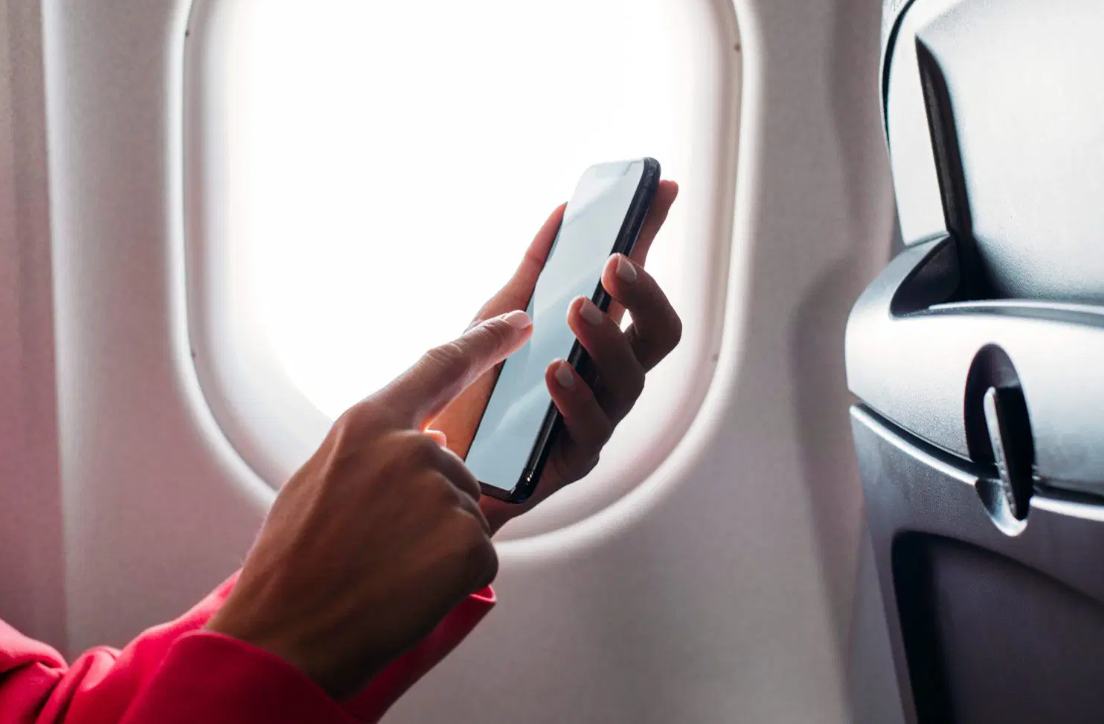|
Getting your Trinity Audio player ready...
|
On a busy Monday morning in August 2025 at Murtala Muhammed Airport, an incident unfolded aboard an Ibom Air aircraft. A passenger, pressed to his ear with a phone call, refused to turn off his device as the cabin crew conducted their final checks.
Voices rose, tempers flared, and soon enough, the incident spilt online, igniting yet another debate: Must passengers switch off their phones before takeoff, or is this an outdated aviation rule?
To address the controversies surrounding the requirement to switch off phones during flights, ROUNDCHECK provided a comprehensive explanation of what Nigerian law states.
What Does The Law Say?
The Nigerian law is clear on the use of devices onboard an aircraft. Under Section 85 (3) of the Civil Aviation Act of 2022, passengers are legally required to turn off their mobile devices once onboard. Failure to comply can result in a fine of up to ₦200,000, imprisonment for a minimum of two months, or both.
Furthermore, Section 459 (A) of The Nigerian Criminal Code Act states that any person who unlawfully obstructs or alters the course of an aircraft in motion or during flight is guilty of a misdemeanour and may face up to two years’ imprisonment.
Michael Achimugu, Director of Public Affairs and Consumer Protection at the NCAA/Civil Aviation, stated via social media that Nigeria’s regulations regarding phones and other electronic devices have been standardised: all phones must be switched off during the critical phases of takeoff and landing.
Airlines must update their security protocols accordingly, as the previous allowance for ‘aeroplane mode’ is no longer valid until regulations are revised to reflect technological advancements.
Moreover, the Federal Airports Authority of Nigeria (FAAN), in a statement, emphasised that they are committed to ensuring the safety and security of all travellers, staff, and airport users.
Mandatory Checks In Nigerian Airports
At the Terminal Building:
- All persons and luggage entering through security must be screened.
- Only passengers with valid travel documents will be allowed access to departure halls.
At the Check-In Desk:
- Ensure your baggage is declared and tagged.
- Dangerous goods and prohibited items, as listed on display boards, must not be packed in checked-in luggage or hand luggage.
At Security Screening Points:
- Passengers and their hand luggage must pass through scanners and security checks.
- Remove metallic objects, belts, shoes, and electronic devices as instructed by FAAN AVSEC security personnel.
At Boarding Gates:
- Boarding passes and ID cards will be verified.
- Liquids or gels exceeding 100ml will be confiscated.
- FAAN security officers will conduct physical inspections where necessary.
Key Reasons For Switching Off Phones In An Aeroplane
- Signal Interference:
Mobile devices emit radio signals that can interfere with aircraft navigation and communication systems. Even minor disruptions can pose risks in low-visibility conditions or congested airspace.
- Communication Clarity:
Pilots require uninterrupted contact with air traffic control. Static from multiple active devices can compromise communication during critical moments.
- Passenger Attention:
Safety announcements before takeoff are vital. Phone conversations or loud ringtones can distract passengers from evacuation instructions.
Nigerian aviation law clearly states that passengers must comply with all instructions from airline authorities, including the directive to switch off mobile phones during flights.









